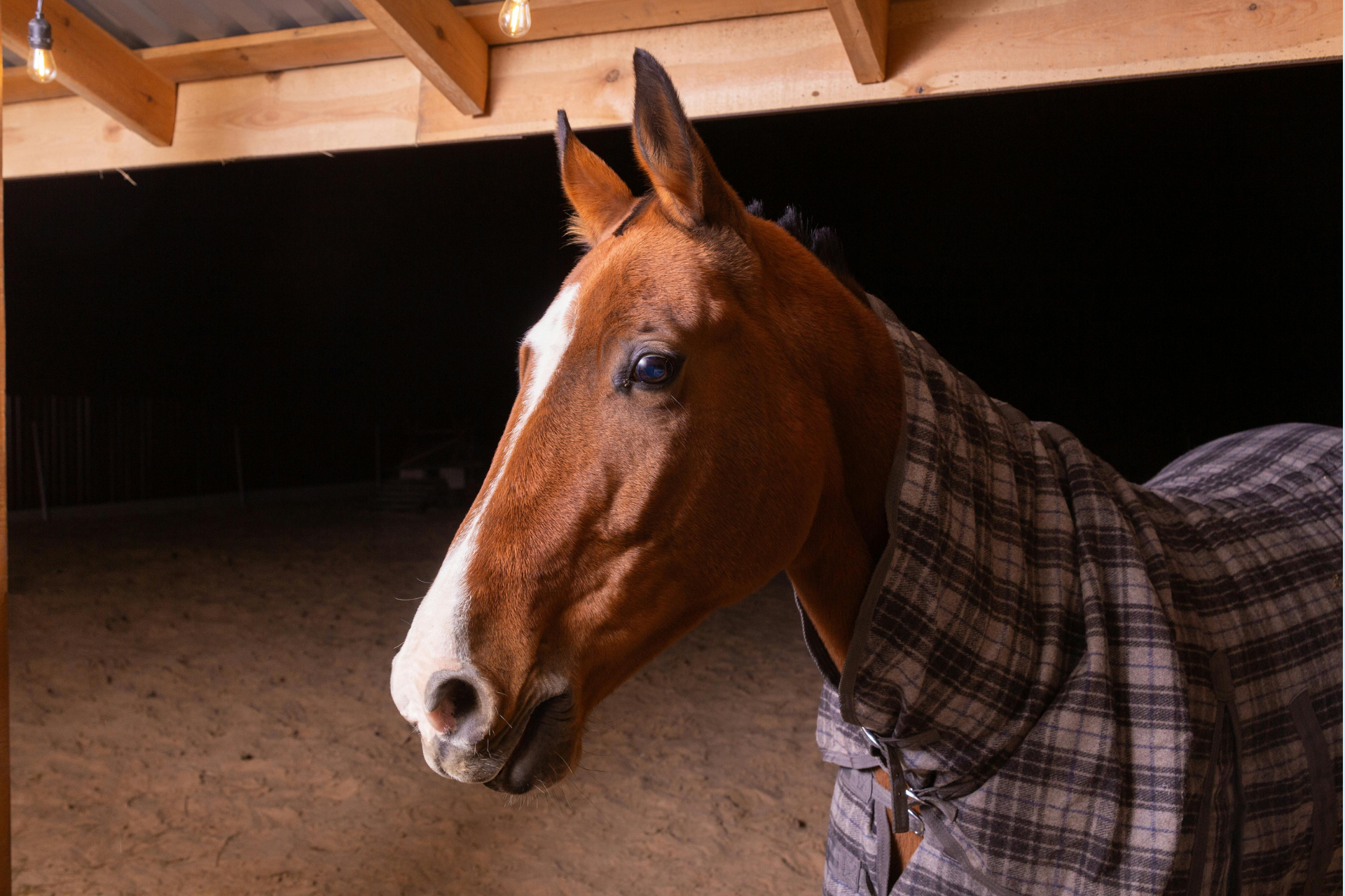As winter is quickly approaching, it’s essential to consider how blanketing plays a crucial role in your horse’s winter care. Proper blanketing can help prevent weight loss, reduce stress, conserve your horse’s energy, and prevent cold-related issues (like hypothermia).
When Do Horses Need Blankets?
Moisture and Temperature:
Understanding the weather is key. If it’s 20 degrees and sunny, horses can often stay warm due to their natural coats and the sun’s warmth. However, when it’s 20 degrees with rain or snow, horses can quickly become cold.
Natural Temperature Regulation:
- Healthy, Young Horses: If they are healthy, young, unclipped, and have had adequate time to grow a winter coat, they may not need a blanket, provided they have access to shelter.
- Harsh Weather: Even horses with a good winter coat might require blankets during severe weather, especially if their coat becomes soaked. This is why having shelter and waterproof blankets is crucial.
Horses with Specific Needs for Blanketing:
- Clipped Horses: These horses lack the natural insulation of a full winter coat, so they will need blanketing.
- Senior Horses & Those with Medical Issues: These horses may struggle to regulate their body temperature and can benefit from the extra warmth of a blanket.
- Underweight Horses: Without sufficient body fat, these horses may need blankets for insulation.
- Horses from Warmer Climates: New arrivals from warmer areas might not have developed a thick winter coat in time and may require blanketing.
Guideline:
When temperatures drop below 20 degrees, consider blanketing senior, underweight, and/or unacclimated horses, especially if it’s not sunny. When temperatures drop below 10 degrees, especially if there is additional wind chill or wet weather, it is time to consider blanketing even a healthy horse with a well-grown winter coat. A good guideline for understanding if your horse is successfully regulating its temperature is to take their temperature! Horses have an average temperature of 99-101 degrees when taken rectally. If you are comfortable taking your horse’s temperature, this can help you understand if they are cold and need a blanket or warm and being overblanketed.
Choosing the Right Blanket
There are three main types of turnout blankets designed for outdoor use, each suited for different conditions: lightweight sheets, medium-weight blankets, and heavy blankets.
1. Light Weight (Sheet):
-
- Ideal for clipped horses in temperatures around 40°F.
- Provides waterproof protection but no insulation.
- Can help maintain the horse’s natural coat’s insulating properties.
2. Medium Weight:
-
- Best for typical cold and wet weather.
- Balances warmth and breathability.
3. Heavy Weight:
-
- Suitable for extreme cold, clipped horses, or older/underweight horses needing extra insulation.
The Importance of Forage
Another important factor in keeping your horses warm this winter is adequate forage. Horses need extra forage in the cold, not necessarily extra grain, because forage is digested in the hindgut, which creates heat. As a guideline, the average horse needs approximately 2% of its body weight in forage daily, so that’s 20lbs of hay each day for the average 1,000lb sized horse, and in extreme cold, they require more.
The Risks of Over-Blanketing
It’s important to remember that many horses can adapt to cold weather without blankets. Over-blanketing can lead to:
- Overheating: This can cause respiratory issues and discomfort.
- Hindered Hair Growth: Blanketing too soon or for horses that don’t need it can interfere with natural temperature regulation.
- Sweating: Excessive warmth leads to sweating, and when temperatures drop later, this moisture can make the horse even colder.
Conclusion
In conclusion, while blanketing can be beneficial for certain horses, it’s essential to assess each horse’s individual needs based on weather and health conditions. Always prioritize their comfort and well-being to ensure a safe and healthy winter season. We’re here to help you and your horse as winter approaches, so don’t hesitate to call with any specific questions you may have as you begin your winter prep!

